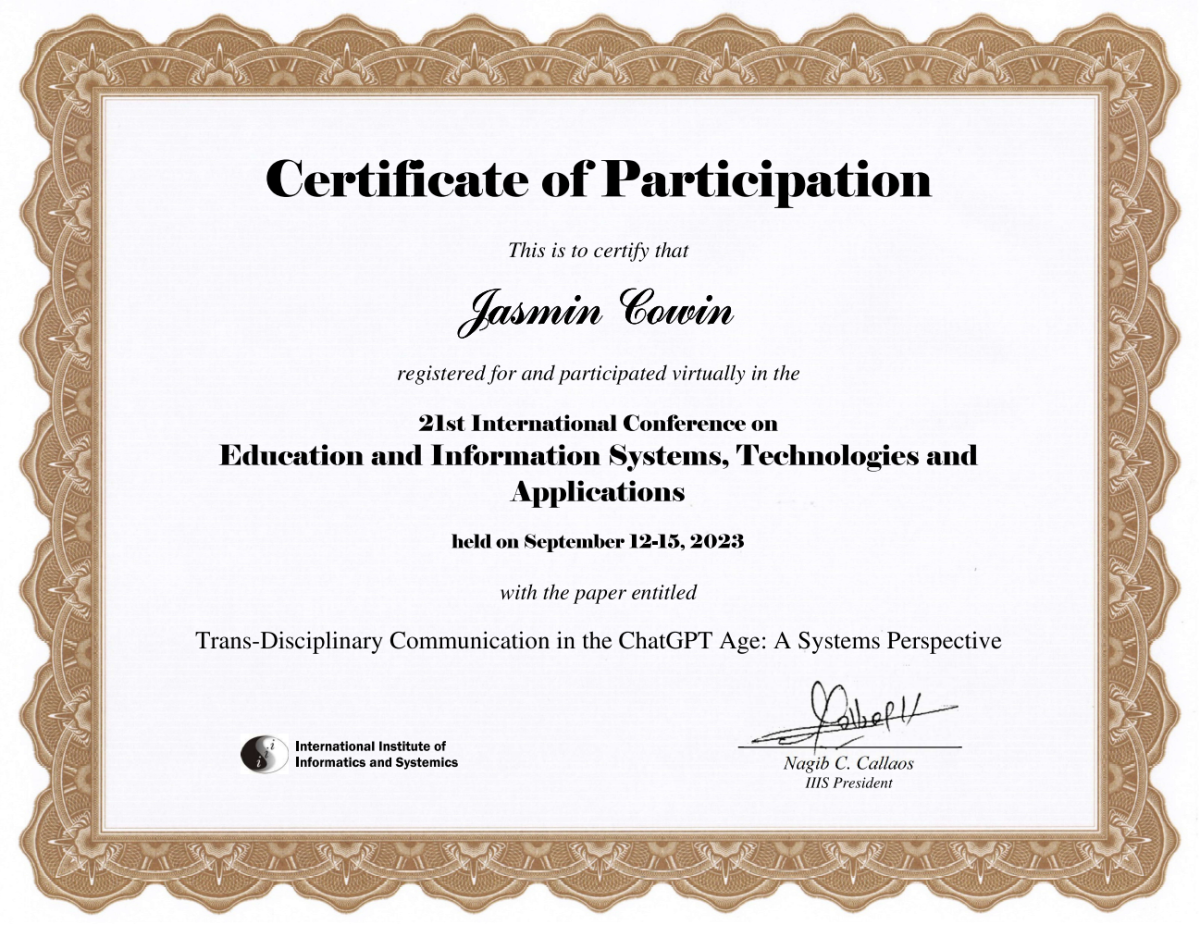We are pleased to announce the publication of:
Trans-Disciplinary Communication in the ChatGPT Age: A Systems Perspective
Jasmin COWIN
Department of TESOL/Bilingual Education, Graduate School of Education
Touro University, NY, 10036, U.S.A.
Birgit OBERER
ETCOP Institute for Interdisciplinary Research,
Klagenfurt, Austria
Cristo LEON
Office of Research & Development, New Jersey Institute of Technology
Newark, NJ, 07102-1982, U.S.A.
ABSTRACT
In recent years, Trans-Disciplinarity (TD) has become increasingly recognized as a critical concept in contemporary scholarship and practice, especially in the emerging field of the metaverse. Despite its growing importance, however, the precise origins and meanings of the term remain somewhat elusive, and its relationship to systems thinking is still poorly understood. Consequently, further research is needed to clarify the definition and application of transdisciplinarity and explore its connections with related concepts such as systems thinking. By doing so, we can gain a broader understanding of how transdisciplinary approaches can be used to address complex problems in a variety of contexts and how they can contribute to advancing knowledge and innovation across disciplinary boundaries.
Keywords: Trans-disciplinary communication, digital age, metaverses, systems thinking, ChatGPT, transformative technologies.
You will find our article on p. 138

Author: drcowinj
Dr. Jasmin (Bey) Cowin, Associate Professor at Touro University, Fulbright Scholar, SIT Graduate, past Education Policy Fellow (EPFP™) at Columbia University, Teachers College. At the heart of my professional journey is a commitment to transformative education, grounded in integrating concepts like Lynda Miller's philosophy of abundance, which counters Ruby Payne’s notion of a Culture of Poverty (2005). This philosophy emphasizes viewing experiences as assets filled with positivity and optimism, particularly valuable in an often dystopian-seeming world. My endeavors align closely with the United Nations Sustainable Development Goal 4: Quality Education, a goal deeply intertwined with both my personal and organizational objectives. This is evident in my work with initiatives such as Computers for Schools Burundi (CfSB), TESOL “Train the Trainer” programs in Yemen and Morocco, and my scholarly contributions including an article in the Journal of Higher Education Theory and Practice (JHETP) and various workshops focused on supporting displaced learners.
As an educator in the Fourth Industrial Revolution era, I recognize our crucial role in preparing the future workforce. To equip students with necessary digital literacy and technological skills, we educators must first master these areas. The technologies defining the 21st-century workforce could lead to new forms of exploitation if access is not globally democratized. By incorporating 4IR innovations in education, we shape students’ worldviews from an early age, preparing them for VUCA (Volatile, Uncertain, Complex, Ambiguous) environments and ensuring they become a skilled, adaptable workforce. In conclusion, my commitment extends beyond transactional interactions, focusing instead on utilizing my skills and privileges to make a positive, enduring impact on the world.
View all posts by drcowinj

